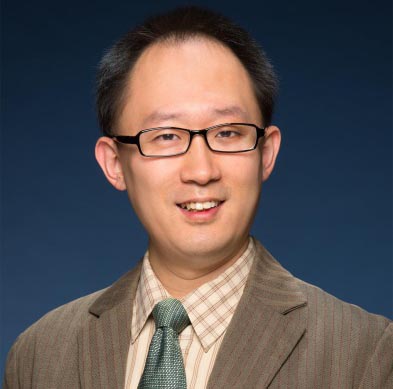Invited Speaker

Dr. Kangning Ren
Associate Professor, Department of Chemistry, Hong Kong Baptist University, ChinaSpeech Title: Novel microfluidic approach for phenotypic antimicrobial susceptibility testing
Abstract: Antimicrobial resistance (AMR), a phenomenon where microbes become resistant to antibiotics, is greatly sped up by misusing antibiotics in modern healthcare system, as well as in the environment by overusing antibiotics in animal husbandry, etc. By measuring the resistance of pathogens in a sample to different drugs, antimicrobial susceptibility tests (ASTs) can effectively reduce the misuse/overuse of antibiotics. However, AST is not widely adopted in practice because of the significant limitations of current methods, such as low speed and low efficiency of conventional methods, and high cost of advanced methods, not to mention the infeasibility in polymicrobial AST and drug combinations. Herein, we present a two-stage culture-based AST strategy based on microfluidic technology. For the first stage, we developed a “barcode” microfluidic system which can perform rapid AST at low cost with minimal requirement on facility environment. This method can be used to screen samples onsite within 3 hours to report suspected samples containing drug-resistant bacteria, which can be sent to advanced laboratory for further analysis. For the second stage, we developed a “cell-on-gel” technology for advanced AST. This design generates a stable linear 2D gradient of drugs along a hydrogel chip surface, which can be used to test the synergistic effect of drugs and perform polymicrobial AST of mixed bacteria without pre-isolation. Based on single-cell imaging analysis, AST can be completed within 3 hours. In this way, our two-stage platform can realize both on-site mass screening of AMR at low cost, and advanced AST in testing laboratories.
Keywords: antimicrobial resistance, antimicrobial susceptibility test, barcode, microfluidic device, point-of-care.
Acknowledgements:
This work was supported by NSFC (81973288, 51773173), HKRGC (12301720, T12-201/20-R, RMGS 2020_4_01), and SZSTC (SGDX20190816230207535).
Biography: Dr. Ren obtained both his Bachelor's and Doctor's degree in Chemistry from Tsinghua University. He received his post-doc training with Prof. Hongkai Wu at HKUST and Prof. Richard N. Zare at Stanford University. He joined Hong Kong Baptist University (HKBU) Chemistry Department in 2014, and was promoted to tenured associate professor in 2020. He is serving as a Senior Academic Member of the SKLEBA at HKBU; co-founder and Associate Director of the HKAP; and the founder and Director of biomimicking microfluidics translational research center at Tsinghua Research Institute, Pearl River Delta. His research centers on micro/nanotechnologies and their applications in materials and healthcare. As corresponding author, he has published articles in Science Advances, PNAS, Biosens. Bioelectro., Lab Chip, Trends Biotech., etc. He is currently on the editorial board of Biomicrofluidics and Scientific Reports, and active reviewer for Science Advances, JACS, Energy & Environmental Science, Chemical Society Reviews, CCS Chemistry, Chemical Science, Small, etc. More information is available at: https://renkangning.wixsite.com/rengroup
